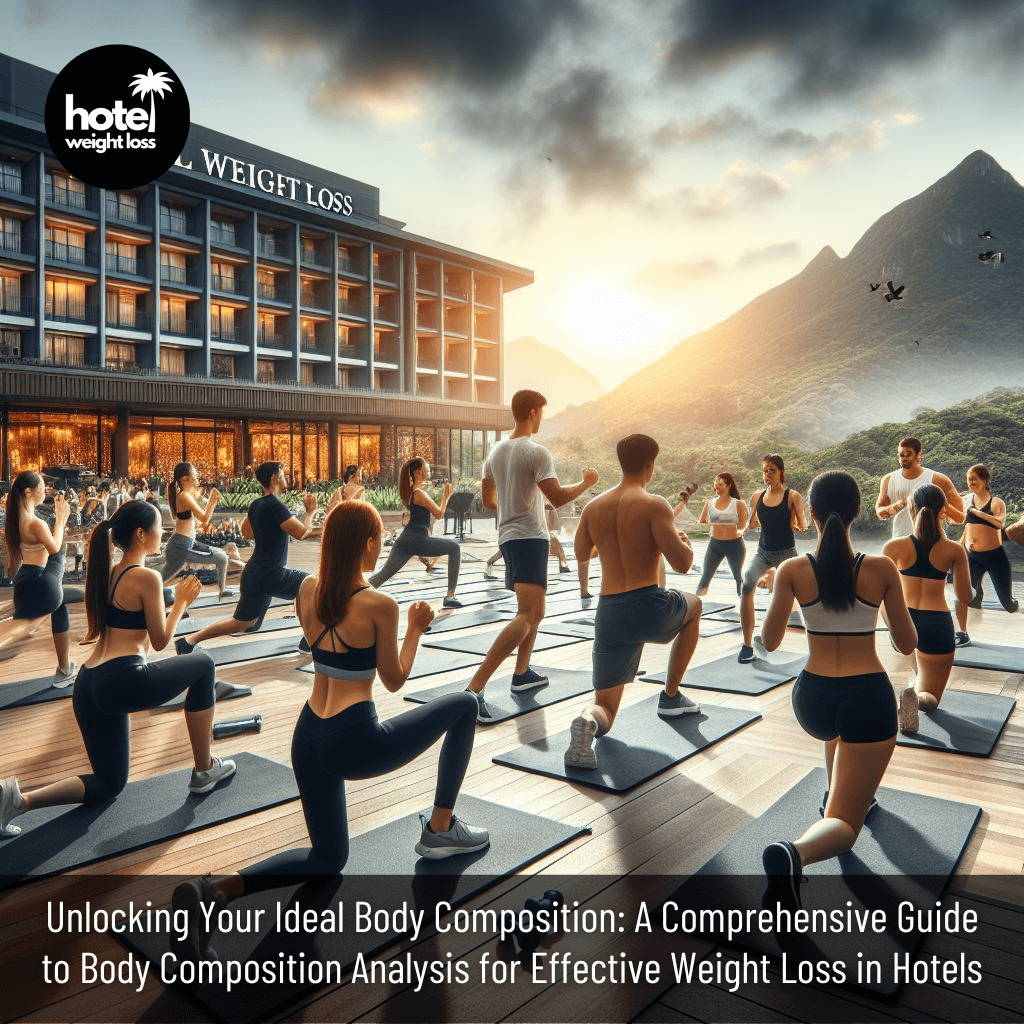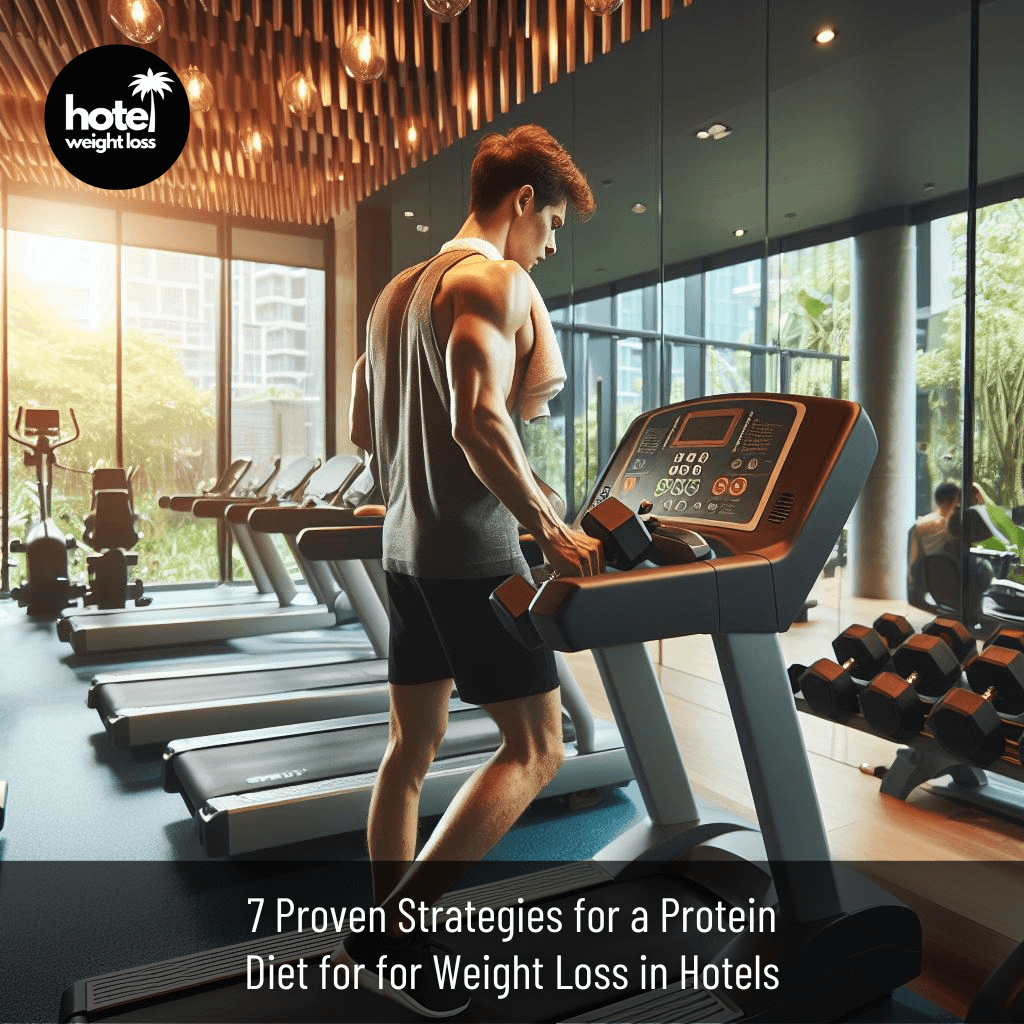It is essential to comprehend your body composition if you want to lead a healthier lifestyle. It’s important to achieve the proper balance of muscle, fat, and other essential elements rather than just losing weight. Imagine stepping onto the scale and seeing beyond mere numbers – envision grasping insights into your body’s inner workings, explicitly tailored to guide your weight loss journey. This is how body composition analysis is powerful. This essay delves further into body composition approaches and examines how they can completely change the way you approach weight loss, particularly in the distinctive environment of hotels. Together, let’s set out on a life-changing adventure to uncover your own self and reach your greatest potential.
Critical Takeaways
Before we delve into the intricacies of body composition analysis, let’s outline some key takeaways:
- Beyond conventional weight measurements, body composition analysis provides an all-encompassing perspective on physical wellness.
- Knowing your body composition gives you the ability to make decisions that will best support your weight loss efforts.
- Hotels can offer the perfect setting for anyone looking to improve their body composition with cutting-edge health initiatives.
- Let’s now take an in-depth look at body composition strategies and how they relate to reaching your weight loss objectives.
The Science of Body Composition Analysis
Understanding Body Composition Metrics
A variety of measures are included in body composition analysis, which offers insights into the makeup of your body. These metrics include:
- Body fat percentage indicates the proportion of your body weight that consists of fat tissue. It is an important metric for determining general fitness and health.
- Lean Body Mass: Also known as fat-free mass, this includes muscles, bones, organs, and water content. It is necessary to preserve the functionality and health of the metabolism.
- Body Mass Index (BMI): Although BMI is a commonly used indicator of body composition, it is not able to differentiate between muscle and fat mass, which presents certain limits.
- Waist-To-Hip Ratio: This ratio assesses the distribution of fat in the body and provides insights into the risk of developing chronic diseases such as cardiovascular disease and diabetes.
- Understanding these metrics allows individuals to tailor their weight loss strategies for optimal body composition and overall health.
Techniques for Body Composition Analysis
Several techniques are available for assessing body composition, each offering unique advantages and limitations:
- Dual-Energy X-Ray Absorptiometry (DXA): DXA is considered the gold standard for body composition analysis, providing precise measurements of bone density, fat mass, and lean tissue mass.
- Bioelectrical Impedance Analysis (BIA): BIA measures body composition by analysing the body’s resistance to electrical currents. While less accurate than DXA, it is non-invasive and widely accessible.
- Air Displacement Plethysmography (ADP): Also known as the Bod Pod, ADP measures body volume by assessing air displacement. It is beneficial for athletes and individuals with unique body compositions.
- Skinfold Thickness Measurements: This method involves measuring the thickness of skin folds at various sites on the body to estimate body fat percentage. While inexpensive, it is less accurate than other techniques.
- By utilising these techniques, individuals can gain valuable insights into their body composition, enabling them to optimise their weight loss efforts with precision and efficiency.

Implementing Body Composition Analysis in Hotel Settings
The Rise of Wellness Tourism
In recent years, there has been a significant rise in wellness tourism, with hotels and resorts increasingly catering to health-conscious travellers. These establishments offer a range of amenities and services to promote physical, mental, and emotional well-being, including personalised fitness programs, nutritious dining options, and spa treatments. By integrating body composition analysis into their wellness offerings, hotels can give guests a holistic approach to weight loss and overall wellness.
Advantages of Body Composition Analysis in Hotels
The hotel environment provides an ideal setting for implementing body composition analysis for weight loss:
- Accessibility: Guests can conveniently access state-of-the-art body composition analysis technologies without additional appointments or travel.
- Personalisation: Hotel staff, including certified fitness trainers and nutritionists, can utilise body composition data to tailor personalised wellness plans for guests, optimising their weight loss journey.
- Immersive Experience: Hotels offer a conducive environment for guests to fully immerse themselves in their wellness journey, free from the distractions of daily life. From nutritious dining options to fitness classes and spa treatments, guests can experience a comprehensive approach to health and wellness.
- By harnessing the resources and expertise in hotel settings, individuals can embark on a transformative weight loss journey guided by science and personalised support.
Case Study: Hotel Weight Loss
Hotel Weight Loss, a pioneering wellness retreat, exemplifies the integration of body composition analysis into the hotel experience. Through innovative programs and cutting-edge technologies, Hotel Weight Loss offers guests a transformative journey towards achieving their ideal body composition. From personalised fitness assessments to tailored meal plans and ongoing support from wellness experts, guests are empowered to take control of their health and wellness in a supportive and immersive environment. By leveraging the power of body composition analysis, Hotel Weight Loss redefines the traditional hotel experience, placing a renewed emphasis on holistic wellness and sustainable weight loss.
Facts and Figures
Find below a figure from the original journal article showing the different types of body composition models.

Credit: https://www.ncbi.nlm.nih.gov/pmc/articles/PMC6366261/figure/F1/
Conclusion
In conclusion, body composition analysis is a powerful tool for optimising weight loss efforts and promoting overall health and wellness. By understanding your body’s unique composition, you can effectively make informed decisions to achieve your fitness goals. Hotels focusing on wellness and personalised services provide an ideal environment for integrating body composition analysis into the guest experience. Hotel Weight Loss stands at the forefront of this movement, offering guests a transformative journey towards achieving their ideal body composition. Contact Hotel Weight Loss today to embark on your personalised wellness journey and unlock your full potential.
FAQs
What is body composition analysis, and why is it important for weight loss?
How often should I undergo body composition analysis?
What are the benefits of incorporating body composition analysis into hotel wellness programs?
How accurate are the different techniques for body composition analysis?
Can body composition analysis help me determine if I’m losing fat or muscle during weight loss?
How does body composition analysis contribute to a holistic hotel wellness approach?
Is body composition analysis suitable for individuals with specific dietary preferences or restrictions?
How can Hotel Weight Loss assist me in achieving my ideal body composition?
Are there any risks associated with body composition analysis?
How can I start with body composition analysis at Hotel Weight Loss?
Ready to embark on your journey to optimal health and wellness? Contact Hotel Weight Loss today to explore innovative keto diet ideas and personalised wellness programs tailored to your unique needs. Start your transformational journey now!
References
Kuriyan R. Body composition techniques. Indian J Med Res. 2018 Nov;148(5):648-658. doi: 10.4103/ijmr.IJMR_1777_18. PMID: 30666990; PMCID: PMC6366261.
Thibault R, Genton L, Pichard C. Body composition: Why, when and for who? Clin Nutr. 2012;31:435–47. [PubMed] [Google Scholar]
Andreoli A, Garaci F, Cafarelli FP, Guglielmi G. Body composition in clinical practice. Eur J Radiol. 2016;85:1461–8. [PubMed] [Google Scholar]
Morley JE, Thomas DR, Wilson MMG. Cachexia: Pathophysiology and clinical relevance. Am J Clin Nutr. 2006;83:735–43. [PubMed] [Google Scholar]
Cruz-Jentoft AJ, Morley JE. Sarcopenia. Chichester, West Sussex, Hoboken NJ: Wiley-Blackwell; 2012. [Google Scholar]




